The 24th
LaureateTheatre/Film
Yoko Morishita
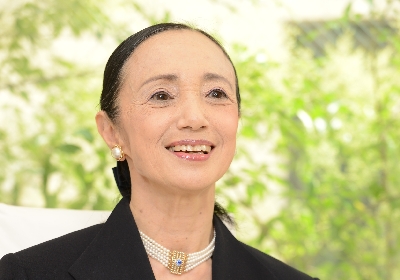
Dubbed the “Prima Ballerina of the World” and the “Pearl of the Orient, ” Yoko Morishita was the first Japanese ballet dancer to flourish on the international scene. Her style, characterized by a sense of compressed passion that belies her 150 cm height, is greatly admired both in Japan and overseas.
She started to study ballet at the age of three and entered the Matsuyama Ballet Company in 1971. After she won the Gold Medal at the 1974 Varna International Ballet Competition, she made many guest appearances with leading ballet companies around the world and was the first Japanese ballet dancer to make an appearance in the Paris Opera.
She danced with Rudolf Nureyev more than 200 times, including a memorable performance for Britain’s Queen Elizabeth’s Silver Jubilee in 1977. She also provided inspiration for choreographer Maurice Béjart who created the successful piece, Light for her.
Morishita has received many awards including the prestigious Laurence Olivier Award in 1985, and in most cases, she has also been the youngest person to receive the award in question.
Even after 61 years of dancing career, she still practices 5 hours every day, honing her skill as an active prima ballerina, concentrating on Swan Lake and other classical works.
Biography
Dubbed the “Prima Ballerina of the World” and the “Pearl of the Orient, ” Yoko Morishita was the first Japanese ballet dancer to flourish on the international scene and is one of the great pioneers of ballet in Japan. Even after 61 years of dancing, she still keeps her position as an active prima ballerina, honing her skills every day and striving to improve her performances for her highly acclaimed interpretation of Swan Lake’s Odette/Odile and other classical roles.
She was born in Hiroshima just after the Second World War and started ballet at the age of three. When she was 12 years old, she joined the Tachibana Ballet School in Tokyo and later, the Matsuyama Ballet Company. In 1974 she participated in the prestigious Varna International Ballet Competition with her husband-to-be, Tetsutaro Shimizu, and became the first Japanese dancer to win the Gold Medal. “This was an important turning point for me, ” she recalls.
After studying in Monaco, she started to make many guest appearances with major international ballet companies. She was asked by many of these dance companies to join them full time but she chose to remain based in Japan.
In 1977 she performed the “grand pas de deux” from Don Quixote with the 20th century legend, Rudolf Nureyev, for Britain’s Queen Elizabeth’s Silver Jubilee. Nureyev and Morishita had great harmony and they danced together more than 200 times, becoming one of the great partnerships in the world of ballet.
She also provided inspiration for choreographer Maurice Béjart (1993 Praemium Imperiale Laureate) who created the ballet, Light, for her; it was his first work to feature a female protagonist. Morishita, paired with Jorge Donn, premiered the ballet in Brussels and Paris, to great acclaim.
In 1982 she became the first Japanese ballet dancer to make an appearance in the Paris Opera, and in 1984 she performed at the 100th Anniversary Gala of the Metropolitan Opera. As a result of these remarkable achievements, she won the Japan Academy of Arts Award in 1985, and in the same year in Britain, she became the first Japanese to win the Laurence Olivier Award.
Her dance style, with its compressed passion that belies her 150 cm height, is greatly admired both in Japan and overseas. The key to her style, she believes, is as she says, “We can express passion in calmness.“
Yoko Morishita is now the President of the Matsuyama Ballet as well as the Prima Ballerina. Last year, after the Great East Japan Earthquake, she performed a new version of The White-Haired Girl, one of the company’s most famous original pieces, in support of the reconstruction. She also encouraged the Matsuyama Ballet School to accept some students from the disaster area, free of charge, as part of their efforts to support the victims of the disaster.
Her personal teacher and British superstar, Margot Fonteyn, retired at 62.Morishita has now passed this milestone but she is very far from retiring. She still practices 5 hours everyday, honing her skills and taking up the mental and physical challenge demanded of her by her passion for her art.
Chronology
Studied under Akiko Tachibana at the Tachibana Ballet School
-
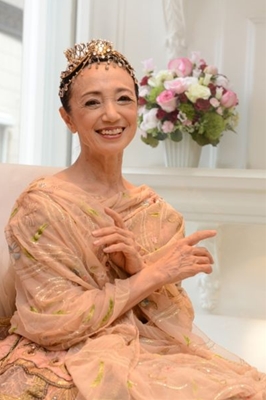
Yoko Morishita
-
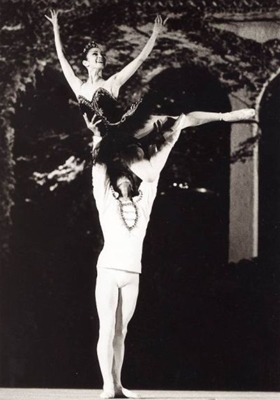
Swan Lake
-
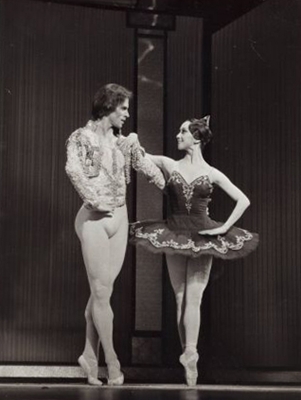
The Queen Elizabeth II Silver Jubilee
-
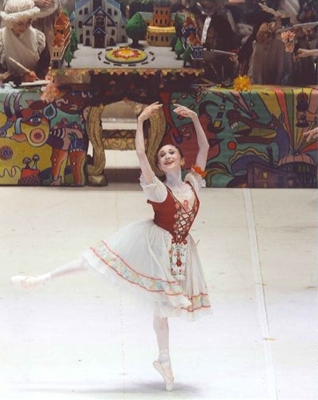
Coppélia
-
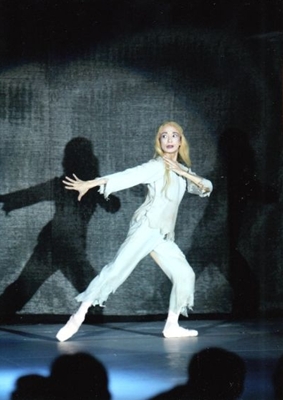
The New White-Haired Girl
-
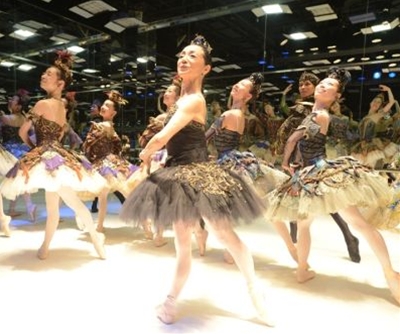
Third Act of New Swan Lake
